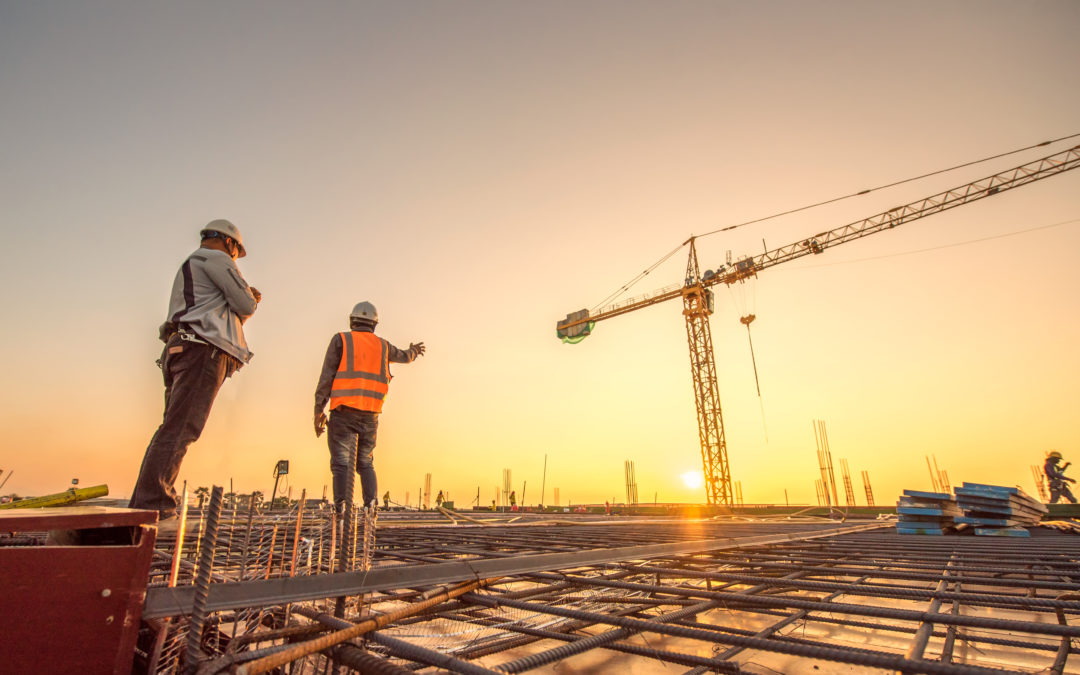Construction services involve the design, development and maintenance of buildings. They may also include infrastructure such as roads and canals, airports and railways.
Full-service construction firms provide initial planning and budgeting, develop a bid package, secure subcontractors and vendors, participate in the bidding process, and coordinate project activities through completion. They can also provide engineering services in-house, boosting efficiency and improving task turnaround times.
Planning
Planning is the first stage in any construction project, and it’s vital to the success of every job. During this phase, the contractor considers the goals and requirements of the client, including design details, construction schedules and budgets. They can also create a plan for using collaborative project software, make decisions on which firms will be invited to bid and more. A good construction project planner will ensure that all of these steps are taken before the work begins, which helps to reduce costs and delays later in the process.
A good construction project planner will also help the team to set realistic expectations and avoid over-promising. Overly optimistic estimates are one of the leading causes of projects going over budget, so it’s important to rein in expectations early. Additionally, a good project planner will plan for supply chain issues and other problems that might occur throughout the process.
Once the project is underway, a good construction planner will monitor progress to ensure that it stays on track. This helps to prevent reworks, which are often caused by unanticipated challenges. It’s also important to keep track of project performance and quality, which can be done by analyzing data from completed projects. This can help to identify trends and areas for improvement. A good contractor will use this information to improve their planning and scheduling techniques for future projects.
Design
Designing services in construction include architectural, structural and civil engineering. This includes the design of new buildings, renovations and deferred maintenance projects, as well as the modification of existing structures and facilities to meet changing needs or requirements. Designing services also involve determining the feasibility of a project and preparing specifications and drawings.
Construction projects require a wide variety of skills, and the work is highly specialized. Designers typically hold a 4-year or higher degree in architecture, building science, civil engineering or quantity surveying. The process of designing a new building involves many factors, including zoning requirements, environmental issues, cost, safety and schedule.
During the preconstruction phase, your design and construction team will conduct business and financial assessments to better understand your organization, goals, vision and current and future facility needs. This helps avoid changes to your plans as the project moves into the construction phase, saving you money and time.
The Design-Build (DB) process combines design and construction into a single contract. The process is gaining in popularity and is projected to make up 44% of all construction projects in the United States within three years. It focuses on collaboration and innovation to reduce the time and costs of the design and construction process. The DB selection process puts in place a rigorous competition procedure that considers qualifications, experience and technical approach as well as price.
Construction
Construction is the process of building and assembling buildings, infrastructure and industrial facilities. It also involves repairing and maintenance work as well as expansion, improvement and upgrade services. The construction industry is one of the largest sectors in the economy and contributes to the world’s GDP. It’s vital for the health of any nation to maintain a strong construction sector to promote economic growth and prosperity.
Professional construction companies have honed their approach to the process, which will help expedite your project. They will be able to provide you with cost estimates and other important details that will allow you to manage your budget more effectively. This allows you to make any necessary adjustments to your plans before the construction process begins.
A full-service construction company will also be able to provide you with a list of required materials that can be purchased from local businesses to keep your costs down. This helps to stimulate the local economy and reduce carbon footprint. They will also ensure that all required safety procedures are followed by the entire crew throughout the construction process.
Construction services are used by both residential and non-residential users, including local authorities, property developers, retailers, transport undertakings and others. The vast majority of construction is undertaken by general contractors. For non-residential construction, architectural and engineering firms are generally hired by real estate developers or project owners to design and plan the work to be carried out by other construction companies.
Maintenance
Maintenance services involve the day-to-day upkeep of a construction site or building. This can include cleaning, trash removal and routine repairs. It may also involve repairing or renovating electrical systems, heating and air conditioning, and more. The most common types of maintenance include:
Preventive Maintenance
A heavy equipment preventive maintenance program requires scheduling a number of routine tasks to ensure that machinery operates at peak performance. This includes visual inspections, technical monitoring and oil analysis to anticipate problems before they become serious.
Routine maintenance is typically done during normal operating times by trained technicians. The routine tasks vary by machine, but usually include items like oil changes and lubrication. Other routine tasks might include checking a battery’s voltage retention and acid ratio, assessing belt age and condition and noting rust, looseness and paint conditions.
Erratic Failure Repairs
This type of repair costs the most, due to the unexpected nature of these breakdowns. Generally, they occur as a result of an equipment malfunction, which could have been prevented by regularly scheduled maintenance inspections. Detailed records are critical for a successful maintenance plan. A well-documented maintenance schedule gives managers clear visibility into equipment service history, helps control costs and improves planning for future repairs. It also reduces litigation risk, enhances operator confidence and maximizes equipment longevity. Detailed records also help identify machinery that needs to be replaced, which saves both time and money.
